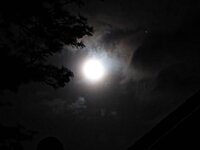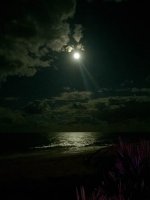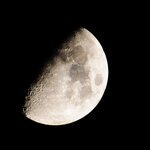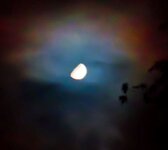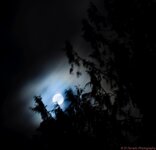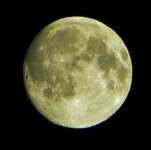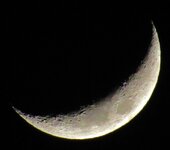BosnMate
Gold Member
- Sep 10, 2010
- 6,916
- 8,441
- Detector(s) used
- Whites MXT, Whites DFX, Whites 6000 Di Pro
- Primary Interest:
- Other
This evening my dog Duke wanted out, evening potty call, so I went out with him. Saw there was a full moon. Told Duke I was going to take a picture of the moon, and got my camera. Seems like I never have much luck taking pictures of the moon, but I kind of like what I got this time. In fact I like it enough to share.
